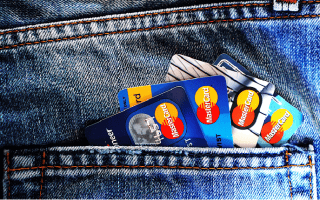
If you want to save more money and get out of debt, your credit score is an excellent place to start. Your credit score provides a kind of snapshot – a look at how you are doing and what lenders see when they look at your file. If your credit score is among the highest, that is a good indication that your financial life is under control. If your score is on the low end of the spectrum, you may need to reevaluate what you are doing and look for ways to improve your financial life.
A good place to start is a company that specializes in providing accurate credit scores to real consumers. A site like the Top 10 Credit Report website allows you to compare features of the top credit report providers, so you can find the service that best meets your needs. You also have access to reviews, so you can see how others like the service before you sign up.
Knowing your current score gives you a place to start and a goal to shoot for. Your credit score is important, but it is also part of a larger overall picture. To improve your credit score, you will need to look at your relationship with money, from how you earn it to how you spend it.
One of the most effective ways to improve your finances is to pay yourself first and make saving money a priority. If your checkbook is nearly empty at the end of the month, turn things around and fund your savings account first. You will be forced to live on what is left, and that will force you to make smarter spending choices.
Paying yourself first pays off in a number of ways. Perhaps most importantly, it forces you to live on less than you make. Whether you send 1% of your pay to the emergency fund or 10% to your retirement fund, you are forced to make do with what remains of your paycheck. You might think you do not have a penny to spare, but you will probably find that is not true.
The pay-yourself-first strategy is also a great way to build for the future, something you may have had trouble doing. If you have a 401(k) plan at work, you can start with as little as 1% of your paycheck. Since the money comes out on a pre-tax basis, the hit to your take-home pay may be less than you feared. As you get more comfortable with the process, you can ramp up your investments and save even more.
At first glance, you might not think that the pay-yourself-first strategy would have much of an influence on your credit score, but you might be pleasantly surprised. Implementing such a strategy is an excellent way to instill financial discipline, and that can help you stick to your monthly budget. When you know where your money is coming from and where it is going, you will be less likely to pay your bills late or miss paying them altogether.
Since a history of on-time payments is one of the best ways to improve your credit score, getting a handle on your finances is sure to improve your standing. Improving your relationship with money and learning how to handle it wisely will improve all aspects of your financial life, from your ability to buy a first home to saving enough money to retire in style.
Taking a holistic approach to managing your money is not always easy, especially if your short-term goal is to raise your credit score. Some people turn to tricks and questionable tactics to raise their scores, but that will not be effective over the long run. If you truly want to improve your credit score, start with a service that compares the features and services of various credit report providers. Armed with your credit score, you can make the changes necessary to improve your finances and your relationship with money.






Comments